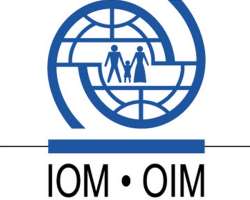IOM Conducts First Mass Oral Cholera Vaccination Campaign in South Sudan

GENEVA, Switzerland, May 13, 2014/African Press Organization (APO)/ -- The start of South Sudan's rainy season has dramatically raised the threat level of waterborne diseases, in particular cholera, for an estimated 86,000 internally displaced persons (IDPs) sheltering in protection of civilian (PoC) sites in UN bases across the country.
“Despite ongoing efforts to improve living conditions at PoC sites, heavy rains coupled with congestion, poor hygiene practices and overburdened sanitation facilities have created conditions ripe for waterborne diseases,” says David Derthick, IOM Chief of Mission in South Sudan.
IOM's Health Unit is responding to the threat by conducting Oral Cholera Vaccination (OCV) campaigns in PoC sites, in close cooperation with WHO, UNICEF and other health cluster partners.
The first campaign began on May 6th at the PoC site in Bor (Jonglei State), which hosts an estimated 3,600 IDPs. Some 2,862 IDPs were vaccinated. A second round will begin in Bor on May 20th.
“Access to safe drinking water and adequate sanitation are at the forefront in preventing both endemic diarrheal diseases and cholera outbreaks, together with intensive health education campaigns conducted through community level volunteers,” says IOM South Sudan Migration Health Officer Haley West.
“Strengthening coordination mechanisms between WASH (Water, Sanitation and Hygiene) and Health cluster partners for harmonized and strong hygiene promotion is crucial. Cholera vaccination is a safe and effective additional tool that can be used under the right conditions to supplement existing cholera control measures,” she notes.
IOM is now also providing primary health care services for IDPs and host communities through clinics located in PoC sites in Malakal (Upper Nile State) and Bentiu (Unity State).
It has also extended mobile health services to the South Sudan-Sudan border area of Wunthou (Renk County, Upper Nile State), where an estimated 13,000 people are displaced.
IOM's presence as the main health actor in these locations remains as the first line of defence against endemic diseases for thousands of vulnerable IDPs and their host communities.
